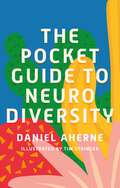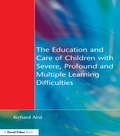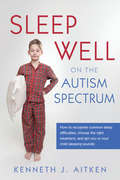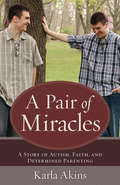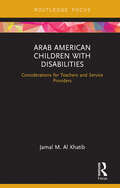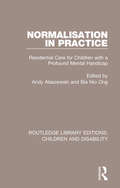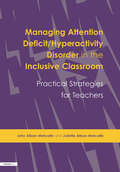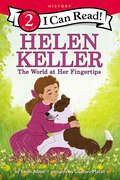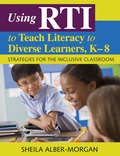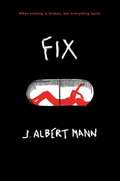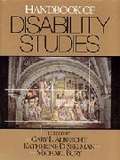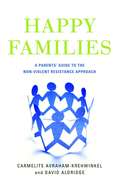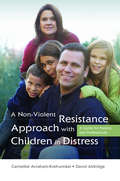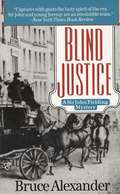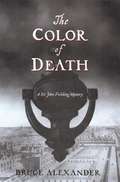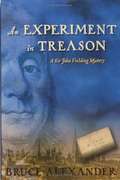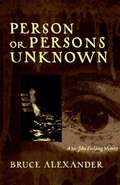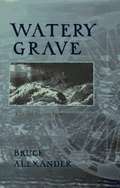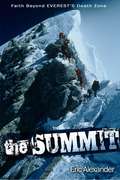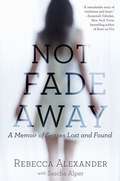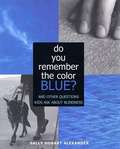- Table View
- List View
The Pocket Guide to Neurodiversity
by Daniel AherneAt least one in seven people are thought to be neurodivergent. So what exactly is neurodiversity? What does 'executive functioning' mean? What are 'spiky profiles'?In this simple guide, expert speaker and trainer Daniel Aherne provides a clear introduction to neurodiversity and the four most common neurodivergent identities of autism, ADHD, dyslexia and dyspraxia. Using an analogy of a cactus needing a desert to grow in, he emphasises the importance of getting the environment right for neurodivergent people, rather than expecting them to adapt to the neurotypical world. Daniel, who himself has ADHD, also explains how neurodivergent people often have great strengths alongside areas of difficulty, and writes about the interplay between diagnoses, as well as unpacking tricky concepts such as working memory, sensory processing, communication differences and more.Busting common misconceptions and setting out simple tips and guidance for supporting the neurodivergent people around you, whether among your family, friends or at your school, college or workplace - or if you yourself are ND and want to improve the understanding of others - this essential guide will help us all celebrate neurodiversity and foster more inclusive communities. .
The Education and Care of Children with Severe, Profound and Multiple Learning Disabilities: Musical Activities to Develop Basic Skills
by Richard AirdThis is a practical guide to managing the whole curriculum for children with severe learning difficulties (SLD). Crucial guidance and effective strategies are provided on how to reconcile the rights, needs and aspirations of such children in light of recent national trends and QCA guidelines.
Sleep Well on the Autism Spectrum: How to recognise common sleep difficulties, choose the right treatment, and get you or your child sleeping soundly
by Kenneth AitkenWhy are sleep disorders more common in individuals with autism spectrum disorders (ASDs), and how can parents recognise the signs and symptoms? Which treatments are most effective, how easy are they to implement and how successful can they be? Full of helpful information and practical advice, this comprehensive guide introduces the most common sleep issues in children with ASDs, describing both mainstream and complementary options for treatment, what is involved and the outcomes that can be expected. The author describes common underlying conditions that might lead to sleep difficulties, including genetic conditions, diet and physical factors, explaining how parents can identify these. Various issues that can affect sleep are explored, including night terrors, teeth grinding, bedwetting and sleepwalking, and practical solutions are given. This is essential reading for parents of children and teenagers on the autism spectrum who have difficulties associated with sleeping, and will also be of great help to all individuals with ASDs who experience sleep problems.
Pair of Miracles, A: A Story of Autism, Faith, and Determined Parenting
by Karla Akins"A parent's gripping journey of awareness, acceptance, and appreciation of her two boys dealing with significant challenges brought on by autism."--Stephen Mark Shore, EdDWhen Karla Akins hoped that her autistic sons could learn to read and function independently, doctors warned her that those expectations would never be met. She set out to prove that, despite those warnings, all things are possible through God.Laced with humor and compassion, A Pair of Miracles is the heartwarming story of her journey rearing adopted twin sons, each diagnosed with autism and fetal alcohol disorder. This is more than a moving biography from a mom on the front lines, however. It is a powerful tool, full of practical help for parents, educators, and church members working with children who have intellectual disabilities, speech impairments, and other limitations on the autism spectrum. It is also a challenge to the church to welcome and celebrate all the members of their congregation, no matter their abilities.Thanks to Karla's determination, faith, and unconditional love--and contrary to the doctors' predictions--her adult twins are now able to function independently in many ways. They help their dad install pools, do carpentry work, and serve in the church as ushers, sound engineers, and children's ministry workers.For parents seeking hope, answers, and peace, Karla leads the way to all three down a path she's already been.
The Silver Bridle
by Caroline AkrillGrace Darling's acting career is managed from a corner table in a Soho Cafe. When she is sent for an audition for a starring role in a television serial she has no idea that the main requirement is riding ability and that her co-star is a horse. Can Grace bluff her way through the audition? Can she overcome the hostility of the fierce young man known in the business as The King of the Horsemasters? And most of all, when it comes to the crunch, can she really act?
Arab American Children with Disabilities: Considerations for Teachers and Service Providers
by Jamal M. Al KhatibDespite a proliferation of special education literature on racial minorities over the past three decades, research and writing on Arab American children with disabilities remain remarkably sparse. This book fills that gap by promoting culturally appropriate services for Arab American children with disabilities. Special education and service providers in the U.S.—including school psychologists, rehabilitation counselors, and social workers—are increasingly likely to work with Arab Americans with disabilities. By focusing on this marginalized minority population, Al Khatib provides much-needed context and direction for service providers and researchers working with the Arab American community. Offering an overview of special education and the rights guaranteed under the Individuals with Disabilities Education Act (IDEA), this book also helps Arab American families understand the special education process and advocate for their children.
Normalisation in Practice: Residential Care for Children with a Profound Mental Handicap (Routledge Library Editions: Children and Disability #Vol. 1)
by Andy Alaszewski Pauline Bn OngFirst published in 1990, this book was the first informed study to focus on care within the voluntary sector. Written with the child in mind, it is a sensitive work which explores the administration, strategy, and problems facing carers in children’s homes, at that time. <P><P>Centring on small, community-based facilities, the authors discuss the processes involved in setting up and running such facilities. They examine the difficulties of evaluating progressive services that are influenced by the philosophy of normalisation, and highlight the lessons from which other providers of services are able to learn. <P><P>Written by experienced researchers with contributions from service managers, Normalisation in Practice offers pragmatic advice on managing innovation efficiently without neglecting the needs of the child. Detailed interviews are combined with theoretical insight to provide an important guide for students and practitioners and a model for academics undertaking evaluative research. Although written at the start of the 1990s, this book contains discussions and material that are still very relevant to the subject today.
Managing Attention Deficit/Hyperactivity Disorder in the Inclusive Classroom: Practical Strategies
by John Alban-Metcalfe Juliette Alban-MetcalfeThis book provides commonsense information and insights into the condition, and considers the: · key features of AD/HD and which warning signs to watch out for · educational implications for children diagnosed · pros and cons of using medication · case studies which demonstrate the successful and effective inclusion of children with AD/HD into mainstream classrooms · ways in which parents, teachers and schools can co-operate with other agencies to ensure best provision for the child The authors also provide guidance on writing Individual Education Plans, clear explanations of the statementing process and a discussion on the implications of whole school planning and multi-agency working.
Helen Keller: The World at Her Fingertips (I Can Read Level 2)
by Sarah AlbeeLearn about the inspiring life of Helen Keller in this early reader biography.When Helen Keller was a baby, she became sick and lost her ability to see and hear. Although many people doubted her ability to persevere, Helen did not let any obstacle stop her from achieving many things in her amazing life.This book covers some of the well-known and inspiring milestones of Keller’s life—it’s a great supplement for book reports on this iconic historical figure. It also covers some of the lesser-known fun facts—did you know that Helen Keller was a long-time dog lover?This biography reader includes a timeline, historical photographs, and information about Braille. Helen Keller: The World at her Fingertips is a Level Two I Can Read, geared for kids who read on their own but still need a little help. Whether shared at home or in a classroom, the engaging stories, longer sentences, and language play of Level Two books are proven to help kids take their next steps toward reading success.
Using RTI to Teach Literacy to Diverse Learners, K-8: Strategies for the Inclusive Classroom
by Sheila Alber-MorganPractical intervention strategies for diverse learners who struggle with literacy! Covering reading and writing, this book shows K–8 teachers how to build the literacy skills of diverse learners in inclusive classrooms. The author discusses instruction and assessment within a Response to Intervention (RTI) framework and how to provide targeted support to students who may require special attention. The book offers: Specific literacy intervention strategies for each tier in a 3-tier RTI framework Examples of assessments and graphic organizers Brief case studies illustrating how the strategies can be used with students A discussion on using thematic units to integrate reading and writing
But I'm Ready to Go
by Louise Albert"Ms. Albert has written a superb book for those trying to understand what rife is like for the minimally handicapped as well as a poignant story for those who too often feel isolated or that they are coping alone. It is a book that is long overdue!' Also: "There's more to Judy's character than straight diagnosis, and her swings between brave resolution and impotent frustration are highly empathic. That one can feel as much in common with Judy's isolation in school and longing to play the guitar as with [her sister] Emily's abilities in the same areas is a measure of [Ms.] Albert's low-keyed success."
Fix
by J. Albert MannIn this gritty, heart-wrenching mystery, prose and verse mix to explores themes of disability, pain, belonging, loss, addiction, and friendship.Everything was fine before. When Eve and Lidia could hide their physical differences inside goofy Burger Hut costumes. When Lidia shook Eve up and Eve made Lidia laugh. When Lidia was there. Everything is different now. Cut open . . . rearranged . . . stapled shut, Eve is left alone to recover in a world of pain and a body she no longer recognizes. Her only companions being a bottle of Roxanol and an infuriating (but cute) neighbor, Eve strikes up a relationship—and makes a pact—with the devil. Sacrificing pieces of a place she doesn't know to return to a place she does. What will she discover when she unravels her past? And is having Lidia back worth the price? In verse and prose, Fix paints a riveting picture of a teen struggling to find herself and move forward with her life in a sea of opioids, regret, grief, and hope.
Handbook of Disability Studies
by Gary L. Albrecht Katherine D. Seelman Michael BuryDrawing on the insights of disability scholars around the world and the creative advice of an international editorial board, this book engages the reader in the critical issues and debates framing disability studies and places them in an historical and cultural context. Five years in the making, this one volume summarizes the ongoing discourse ranging across continents and traditional academic disciplines.
Happy Families
by David Aldridge Carmelite Avraham-KrehwinkelParenting a severely disruptive child can be exhausting and demoralizing to the point where breaking the cycle of bad behaviour seems an impossible task. Happy Families offers a realistic, step-by-step, practical approach to tackling destructive behaviour that helps parents regain control and establish harmony within the family. Using hands-on techniques based on the principles of non-violent resistance, each chapter deals with a different stage of the process - from communicating to the child an unwavering determination that the situation will change and enlisting the support of family and friends, to taking positive action in a way that avoids escalation. General advice such as how to respond constructively and consistently to provocation is included throughout, and morale-boosting tips encourage flagging parents to persevere with the approach. Happy Families will empower despairing parents and caregivers who seek to contain, counter and positively re-direct the aggression they face from children in distress, resulting in deep-felt and lasting change.
A Non-Violent Resistance Approach with Children in Distress
by David Aldridge Carmelite Avraham-KrehwinkelParents, teachers and other professionals often struggle to know how to deal with disruptive, abusive or aggressive behaviour. This book addresses the urgent need for a realistic, practical and effective approach to dealing with severe disruptive behaviour in children and adolescents. Adapting the principles of non-violent resistance originally advocated by Mahatma Gandhi, the book provides de-escalation techniques which empower the adult and unburden the distressed child. The authors outline the theoretical basis upon which the approach was developed, and explain how and why it can be so effective. Case studies demonstrate how the approach can be used to reach more successful places with unhappy and disruptive children of different ages. A separate section for parents provides useful advice on how to take the theoretical material and use it to deal with problematic behaviour in everyday life. As effective as it is original, this approach will empower desperate parents and despairing caregivers by equipping them with hands-on tools to contain, counter and positively direct the aggression and opposition which they face from children in distress.
Blind Justice (Sir John Fielding Mystery #1)
by Bruce AlexanderFalsely charged of theft in 1768 London, thirteen-year-old orphaned printer's apprentice Jeremy Proctor finds his only hope in the legendary blind magistrate, Sir John Fielding. Fielding, founder of the Bow Street Runners police force, then recruits young Jeremy in his mission to fight London's most wicked crimes.
The Color of Death (Sir John Fielding Mystery #7)
by Bruce AlexanderSuspicion and fear are running high in London, as a gang of expert criminals terrorizes the town in a spree of robbery and murder--noblewomen are held at gunpoint in their parlors, and an innocent manservant is executed in cold blood. There is but one peculiar clue to the identity of this group: The robbers are all black men. When Sir John takes a bullet to the shoulder early on, it is young Jeremy Proctor--who has been the blind magistrate's eyes for so many years--who must lead this most delicate investigation, albeit under Sir John's bedridden counsel. And when Jeremy begins to turn over stones, he and Sir John come to find that black and white is never as simple as it seems--and the deeds being committed are even darker than they imagined.
An Experiment in Treason (Sir John Fielding Mystery #9)
by Bruce AlexanderA packet of incendiary letters is stolen from the London residence of a prominent official, and turns up in the colony of Massachusetts. Why are the contents of the letters so controversial? Why has a suspect in the theft turned up dead? And what should magistrate Sir John Fielding do about his feeling that Benjamin Franklin is somehow complicit? While the tensions rise, Sir John and his protégé, Jeremy Proctor, search for answers—and find that justice isn’t always served by the letter of the law.
Person or Persons Unknown (Sir John Fielding Mystery #4)
by Bruce AlexanderLegendary nineteenth-century London judge Sir John Fielding returns in the fourth--and most thrilling--of Bruce Alexander's highly praised mysteries. From the first book, the mystery lovers verdict has been unanimous: the Fielding hooks are "enthralling" (The New York Times Book Review), "first-rate" (The Boston Globe), "wonderful, beautifully written and altogether fun: (The Washington Post). John Fielding was famous not only as cofounder of London's first police force, the Bow Street Runners, but also as a magistrate of keen intellect, fairness and uncommon detective ability. When a crime was committed, he often took it upon himself to solve it. What made this all the more remarkable was that he was blind. Now the blind magistrate and his young assistant and ward, Jeremy Proctor, face a series of crimes that hit shockingly close to home. Prostitutes are being murdered around Covent Garden, and there are troubling implications about the identity of the killer. Baffled and frustrated, Fielding devises a daring and desperate plan, but the consequences are unexpected and more terrible even than he could imagine. Filled with the authentic sights and sounds and atmosphere of the times, and with a supremely colorful and varied cast of characters, Person or Persons Unknown is in every way a worthy addition to a marvelous series. BRUCE ALEXANDER is the pseudonym for a well-known author of fiction and nonfiction. The previous books in the series are Blind Justice, Murder in Grub Street (named by The New York Times Book Review as one of the Notable Books of 1995 in crime fiction) and Watery Grave. Alexander is at work on the fifth Sir John Fielding novel.
Watery Grave (Sir John Fielding Mystery #3)
by Bruce AlexanderBlind Justice, the first novel featuring legendary eighteenth-century London judge Sir John Fielding, was one of the most highly acclaimed mystery debuts of 1994. Murder in Grub Street, the second novel, was named by The New York Times Book Review as one of the Notable Books of 1995 in crime fiction. Now Fielding returns in his most baffling case yet. John Fielding was famous not only as cofounder of London's first police force, the Bow Street Runners, but also as a magistrate of keen intellect, fairness and uncommon detective ability. When a crime was committed, he often took it upon himself to solve it. What made this all the more remarkable was that he was blind. In Watery Grave, accompanied by his eyes (and the series' narrator), young Jeremy Proctor, Fielding encounters a case that hits close to home, as a stepson returns from the high seas with tales of typhoons and a captain overboard. Was it an accident, or was it murder? Fielding is asked to investigate, but discovers considerably more than he'd bargained for--including some secrets that might better have been left at the bottom of a watery grave. Filled with the authentic sights and sounds and atmosphere of the times, and with a supremely colorful and varied cast of characters, Watery Grave is in every way a delight to read.
Back To Front And Upside Down
by Claire AlexanderIt's the principal's birthday, and the class is busy writing cards for the special occasion. But Stan's letters tumble out in a muddle.<P> With a friend's help, Stan finds the courage to voice his fears. And after lots and lots of practice, Stan's letters come out the right way round and the right way up.<P> This warm, sympathetic book deals with a common childhood frustration and will remind readers that everyone has to ask for help sometimes.<P> Winner of the Schneider Family Book Award
The Summit
by Eric AlexanderIt's one of the greatest challenges one can face on Earth: an ascent to the top of the world on the slopes of Mount Everest. Eric Alexander experienced grace and a faith-empowering journey he will never forget as part of a record-setting team in May 2001, scaling the heights of Everest with his friend, blind climber Erik Weihenmayer. Experience some of the most dangerous locations in the world, including abject terror on Ama Dablam, a blind ski descent of Russia's Mount Elbrus, and up Kilimanjaro in Africa with four blind teens Gain wisdom in the application of trust, courage, innovation, teamwork, leadership, and integrity to overcome your own Everests. Discover practical faith lessons learned on the highest peaks of six continents. Here is the powerful story of Eric Alexander and his unique life journey of guiding people with disabilities as they overcome the most perilous places of the world. Follow in their footsteps, and learn about faith, trust, prayer, depending on God, as well as the perseverance needed in your own life. Be inspired and motivated by Eric's insight, not simply to survive but to thrive every day in God's grace.
Not Fade Away
by Rebecca Alexander Sascha Alper<P>Even a darkening world can be brilliantly lit from within. <P>Born with a rare genetic mutation called Usher Syndrome type III, Rebecca Alexander has been simultaneously losing both her sight and hearing since she was a child, and was told that she would likely be completely blind and deaf by age 30. Then, at 18, a fall from a window left her athletic body completely shattered. <P>None of us know what we would do in the face of such devastation. What Rebecca did was rise to every challenge she faced. She was losing her vision and hearing and her body was broken, but she refused to lose her drive, her zest for life and - maybe most importantly - her sense of humor. Now, at 35, with only a sliver of sight and significantly deteriorated hearing, she is a psychotherapist with two masters' degrees from Columbia University, and an athlete who teaches spin classes and regularly competes in extreme endurance races. She greets every day as if it were a gift, with boundless energy, innate curiosity, and a strength of spirit that have led her to places we can't imagine. <P>In Not Fade Away, Rebecca tells her extraordinary story, by turns harrowing, funny and inspiring. She meditates on what she's lost--from the sound of a whisper to seeing a sky full of stars, and what she's found in return--an exquisite sense of intimacy with those she is closest to, a love of silence, a profound gratitude for everything she still has, and a joy in simple pleasures that most of us forget to notice. <P>Not Fade Away is both a memoir of the senses and a unique look at the obstacles we all face--physical, psychological, and philosophical--exploring the extraordinary powers of memory, love, and perseverance. It is a gripping story, an offering of hope and motivation, and an exquisite reminder to live each day to its fullest.
Do You Remember the Color Blue?: And Other Questions Kids Ask about Blindness
by Sally Hobart AlexanderChildren ask questions of an author who lost her vision at the age of twenty-six, including "How did you become blind?" "How can you read?" and "Was it hard to be a parent when you couldn't see your kids?"
Mom Can't See Me
by Sally Hobart AlexanderNine-year-old Leslie tells how her mom does everyday tasks while being blind, from keeping track of her daughter at nursery school to going to soccer games, to the movies, and canoeing.
